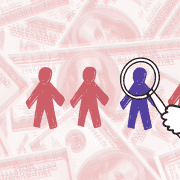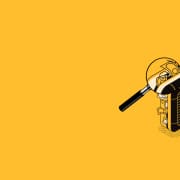|
Getting your Trinity Audio player ready...
|
Our new mini-series shines the spotlight on the current Financial Action Task Force (FATF) beneficial ownership review process. Part 1 presented the particular issues the organisation has recently sought input on, part 2 examined the five recommendations submitted by Transparency International as a response to the FATF invitation, part 3 looked at the FATF draft amendments in response to the call for submissions, and this article – part 4 – recaps a number of recent high-profile examples of why beneficial ownership transparency is so important.
Beneficial ownership (BO) opacity is a high-risk situation that enables a range of criminal activities. The beneficial owner of a company is the true owner who ultimately benefits from the operations of that company – but they may not be the legal owner declared in company documents, as anonymity in the company’s ownership conceals their identity. Meanwhile, the anonymous company provides a cover for tax evasion, wildlife crime, money laundering, human and arms trafficking, the funnelling of large sums of money safely to the coffers of terrorist organisations, and personal gain from prohibited transactions.
From June to August 2021 the Financial Action Task Force (FATF) sought input on potential amendments to its recommendation 24 (R.24) which deals with beneficial ownership transparency, and the accompanying interpretive note. The FATF has analysed the views received from various stakeholders, including organisations such as Transparency International, the International Federation of Accountants, and Open Ownership, and has released a draft of the proposed amendments.
And not too soon, either, because BO irregularity happens on a global scale. South Africans too have had their share of such scandals. The ongoing Digital Vibes saga is one high-profile case that shocked us with its callousness, but for every one that is exposed, there are scores more that escape notice.
Digital Vibes is a media company specialising in various fields of marketing, branding and communication. It was hired by the national Department of Health (NDOH) to handle communications for the NDOH’s National Health Insurance media campaign, and was later also tasked with working on the department’s Covid-19 campaigns.
At the time of the tender award Digital Vibes was seemingly owned by Radha Hariram, who was later unmasked as a petrol station manager. An investigation report, released just weeks ago by the Special Investigating Unit (SIU), indicates that the real owners were Tahera Mather and Naadhira Mitha, who were ‘close associates’ of then health minister Zweli Mkhize, and that Digital Vibes was merely a front for the pair.
Furthermore, the tender was awarded after a July 2019 request for a deviation was denied by the National Treasury, though the DoH appears to have subsequently ignored the treasury instruction to hold an open tender process for the media campaign. Instead, in September 2019, it requested proposals from a small group of potential suppliers, including Digital Vibes.
Only after the SIU had investigated the matter did the revelations of the true owners come to light. By then not only had the beneficial owners profited, but so had members of Mkhize’s family – and the state purse was unlawfully R150-million poorer.
According to the report, Mkhize also “deliberately ignored a cabinet decision” that Covid-19 communications – for which Digital Vibes was later appointed – would be handled by the Government Communication and Information System.
The report also found that Mather had laundered R3.4-million through a Cash & Carry, and Mkhize’s son had picked up laundered money at a petrol station which employed Hariram as a manager.
Mkhize has since announced that he will challenge the SIU report.
Family ties
Elsewhere in the world, the same skulduggery is going on. In its FATF submission, Transparency International highlighted just a few of the cases “where data from public beneficial ownership registers may have helped to uncover potential wrongdoing”.
In Argentina, former president Mauricio Macri is alleged to have committed fraud in deals involving wind farms in that country. New information from Luxembourg’s beneficial ownership register has shed more light on the scandal. It involves Spanish company Isolux, which in 2009 received a concession to build and operate four wind farms in Argentina – but by 2015, when Macri was inaugurated, only one farm was operational.
Isolux had run into financial problems and by October 2016 had sold its concessions to two local companies — Sidsel S.A. and Sideli S.A. These were later linked in media reports to Macri’s family.
Despite Isolux’s woes, Macri awarded two more wind farm concessions to the Spanish company, which swiftly sold them to one of the Macri-linked companies – and then declared bankruptcy. The two companies sold their six concessions within a year, at a profit of around $70-million. At the time the connection to Macri was unknown, but later investigations revealed that, through a chain of Argentinian and Spanish companies, Sidsel and Sideli were managed by a Luxembourg company named Rainbow Finance – whose beneficial owner was secret until EU policy dictated, some 18 months later, that corporate ownership in Luxembourg must be disclosed.
The data from Luxembourg’s BO register showed that Mauricio’s brother Gianfranco set up an offshore company in Luxembourg while the former was still president. That company invested in Rainbow Finance and is thought to have facilitated the wind farm deals.
Danish deviousness
The small Danish bank Andelskasse reportedly laundered US$647-million between October 2017 and September 2018. The state began to suspect that Andelskasse had skimped on anti-money-laundering checks on its customers, and took over. An investigation revealed serious anti-money laundering breaches, and Andelskasse’s licence was revoked.
Meanwhile, journalists had identified the owners of the bank’s clients, using the country’s BO ownership register. They found that many of the owners were under investigation in their own countries, or had been linked to suspicious activities. This cast doubt on the bank’s due diligence efforts.
Slippery business
European eels are currently listed as critically endangered, especially those in the glass stage. In 2010, the EU banned their exports and together with a rise in demand in the market because of a shortage of the Japanese species, resulted in soaring prices and an increase in lucrative trafficking.
One seizure of glass eels, by the UK Border Force, revealed a connection between a company registered in that country, and the Hong Kong-based recipient, who had been named. A search of the UK BO register brought up the identity of the UK-based party and with that and other personal and business information, the authorities were able to determine that the company and its beneficial owner had been smuggling eels – a highly protected species – for over two years, raking in millions of pounds.
On the trail
The tragic explosion in Beirut in 2020, which left over 200 people dead, was caused by a large store of unstable ammonium nitrate, confiscated and offloaded from a Moldovan flagged ship, and left to stand.
To date, nobody has been held accountable, but the UK BO register has provided authorities with a few leads. Investigative journalists and civil society together came up with information linking Savaro, the company that owned the abandoned chemical, to businessmen sanctioned by the US for ties to Syrian president Bashar al-Assad.
Data also showed that Marina Psyllou, from Cyprus, was the director and beneficial owner of the company – a claim that she denied. Her name crops up in that capacity in the Panama Papers too, as well as the Offshore Leaks trove, in connection with other companies, meaning she could be a nominee.
Despite the setback, the register may yet yield more possible connections to the real owners of Savaro, which shared a UK address with two other companies owned, according to the BO register, by the two businessmen sanctioned for ties to the Syrian regime. The three companies had the same directors, changed their address on the same day, and had forms signed by the same person. It is now up to authorities to investigate further.
The examples shared here are akin to a few grains of sand on a wide beach of corruption. It will take a global effort to ensure the measures are in place to address the problem, but it looks like the momentum is slowly gathering.








